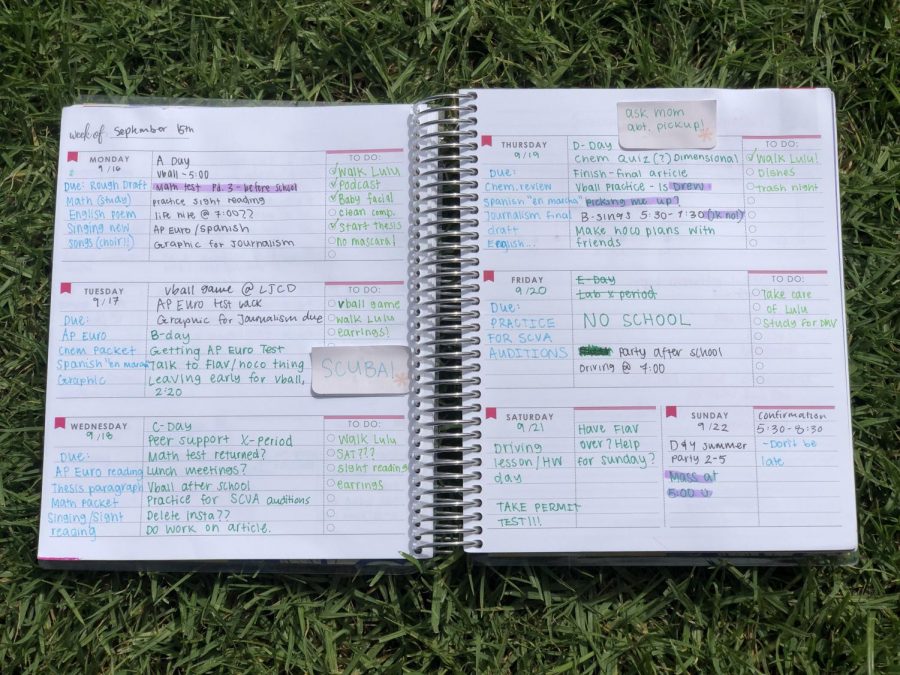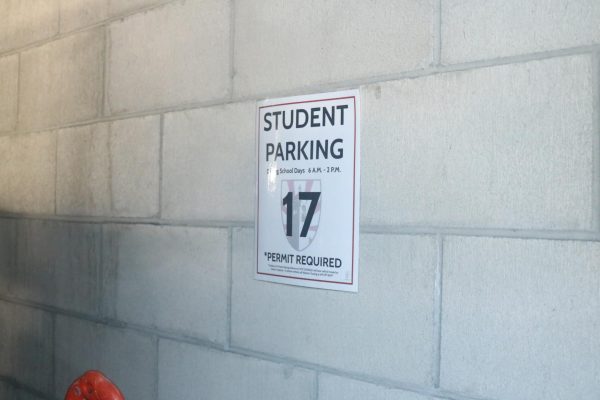Just Five More Minutes: Does a Later Start Time Actually Lead to More Sleep?
The day of a typical teenager in the United States involves slamming on the snooze button a few times, dragging themself out of bed in a bleary-eyed haze, throwing on some clothes, and skipping breakfast. They stagger out the door and into the car, repeatedly jerk themself awake in class, and struggle through hours of extracurriculars. Exhausted, they haul themself home to begin mountains of homework and collapse into bed at midnight.
Two years ago, Bishop’s shifted its start time from 7:25 a.m. to 8:15 a.m. in accordance with dozens of new research studies. This year, as many students noticed on their now traffic-clogged routes to school, both Muirlands Middle School and La Jolla High School followed suit by shifting back their own schedules. So, are these changes, designed to improve the mental health and academic success of high school students, helping?
Some students reported that they do not actually sleep longer when they start later in the morning. “You think you have an extra hour of sleep,” Sharisa You (‘22) explained, “so you go to bed later, but you end up going to bed a whole hour later so you don’t get any more sleep.” However, even with the same amount of sleep, some students feel more alert in the morning if they don’t have to force themselves awake at the crack of dawn. “I feel more refreshed,” explained Maddie Ward (‘22), a new student who transferred from La Jolla High School this year. Last year, she had to wake up at 5:45 a.m., which made her constantly tired and annoyed.
“Having to be ‘on’ or fully functional by 7:15 is just too early, no matter what time you went to bed,” explained Director of Counseling Ms. Megan Broderick (’98). People have biological body clocks; they shift back later during adolescence and shift earlier around age 20.
In a New York Times article, Democratic California State Senator Anthony J. Portantino concluded that waking a teenager at 6:00 a.m. is equivalent to waking an adult at 3:30 a.m. “Imagine how you would feel if, 187 days a year, you had to get up at 3:30 a.m. You’d be miserable, you’d be depressed— you’d act like a teenager,” he pointed out.
While the American Medical Association recommends start times of no earlier than 8:30 a.m., according to a study by the University of Nevada, Reno, students who begin school around 10 a.m. or 11 a.m. show significant academic improvements and superior cognitive function. The New York Times stated that Kentucky, Connecticut, and Virginia all reported higher attendance records and test scores after shifting their times back.
However, If Bishop’s started at 10 a.m., it would have to end around 5 p.m to maintain time spent at school, which would take a huge toll on sports practices and other after-school activities. Therefore, starting this late is not a realistic goal for most schools. Still, three out of every four middle and high schools start before 8:30 in the morning; the average start time is 8:07 a.m., according to the National Center for Chronic Disease Prevention and Health Promotion. Less than one-third of high school students get an adequate amount of sleep.
However, students are not blameless. Grace Knickrehm (‘21) explained, “I sometimes watch The Office and eat food instead of doing homework.” Often late bedtimes result from procrastination rather than excessive homework. “Students need to partner with schools. If schools or the government change the start time to 8:30 to protect students’ wellbeing, students need to do their part,” Ms. Broderick pointed out. “They should reserve the bed only for sleeping, charge devices in a different room, get some kind of exercise on a regular basis, try to eat well, and practice self-care.”

Clare Malhotra was born in Boston, Massachusetts and moved to La Jolla at age nine. She is currently a senior, and this is her third year on The Tower....







Nadia Bitar • Nov 21, 2019 at 2:23 PM
This was an amazing and truly insightful article. 10/10 would read again